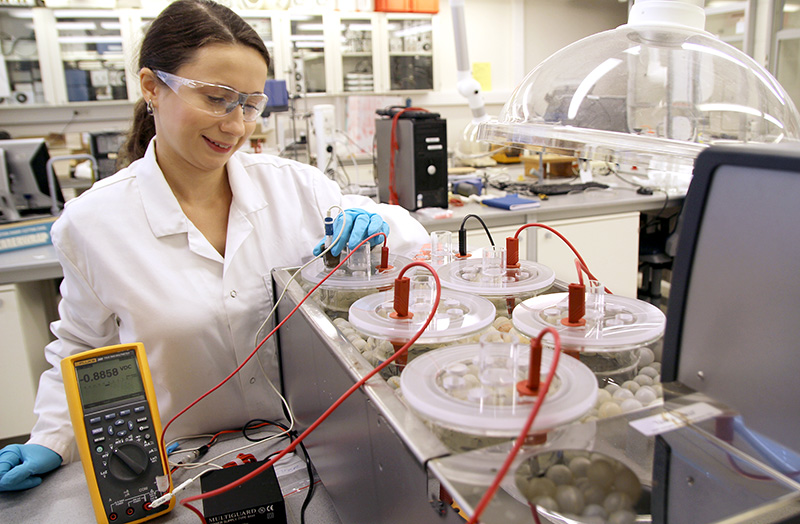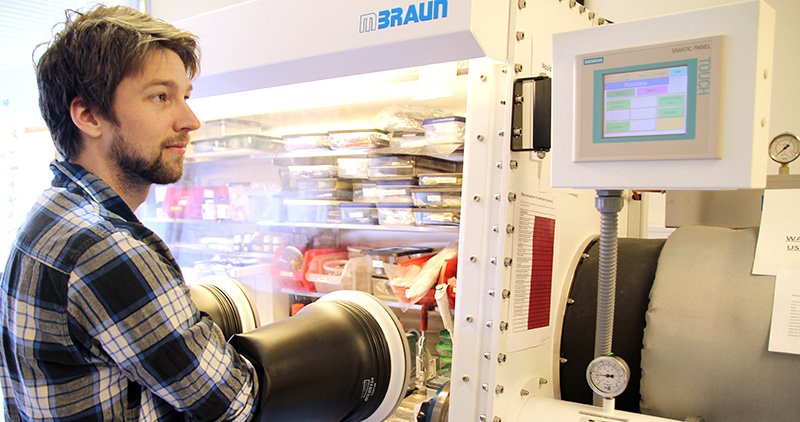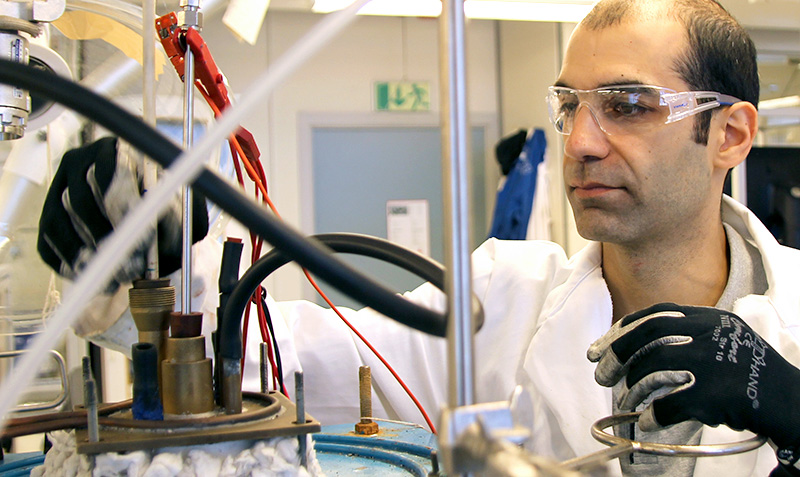Research Areas
Research Areas
In a broad perspective, electrochemistry includes all chemical processes where there is a simultaneous transport of electrical charges. In principal one can divide these into two groups: processes where electrical energy is consumed to produce products (electrolysis, surface technology) and processes where chemical energy is consumed (converted) with production of electrical energy (batteries, fuel cells, photo voltaic cells and metabolic processes involving energy conversion in living systems). All these processes are useful energy conversion processes. Futile energy and material conversions happen through corrosion reactions, which are also of electrochemical nature.
Industrial electrochemistry includes the exploitation of electrochemical processes for metal electrowinning (Al, Mg, Zn, Ni, Co, Cu, Ag, etc.) and other products, like gases (H2, O2, Cl2, F2) and salts (NaOH, NaClO3) and within electro-organic synthesis. Furthermore, it also includes electrochemical surface treatment, production of electrical energy in batteries and fuel cells as well as corrosion and corrosion protection.
Therefore the Electrochemistry group is split into three main research areas:
Corrosion and Surface Science
Electrochemical Energy
Electrolysis



